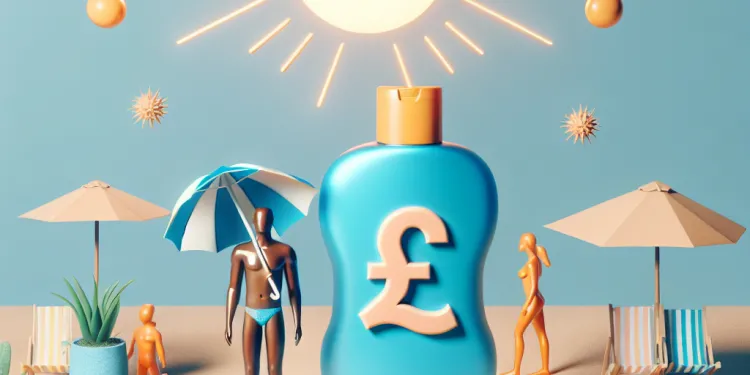
Find Help
More Items From Ergsy search
-
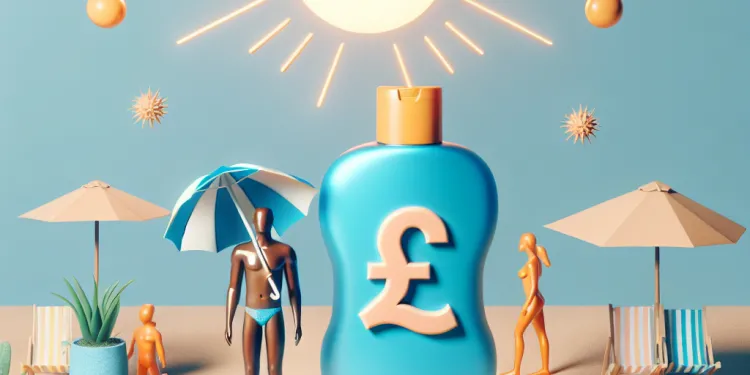
Why do some people not burn as easily as others?
Relevance: 100%
-

How to treat a scald burn
Relevance: 79%
-
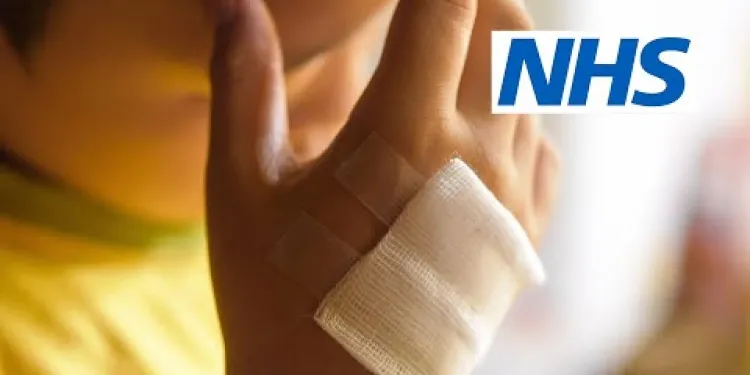
How do I deal with burns and scalds? (9 to 30 months) | NHS
Relevance: 67%
-

Can sunbeds help me burn calories or lose weight?
Relevance: 63%
-

Are some people more prone to sunburn?
Relevance: 43%
-

Anxiety in young people
Relevance: 42%
-
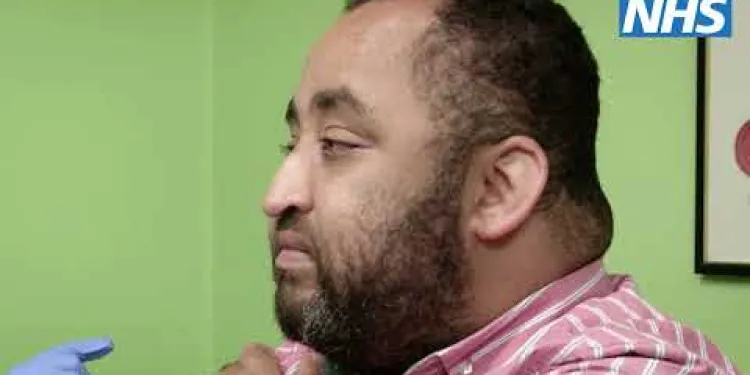
Flu vaccinations for people with a learning disability
Relevance: 37%
-

Is there support available for people with tinnitus?
Relevance: 37%
-

How do I notify people about the funeral?
Relevance: 36%
-

Improving outcomes for people with diabetes
Relevance: 36%
-
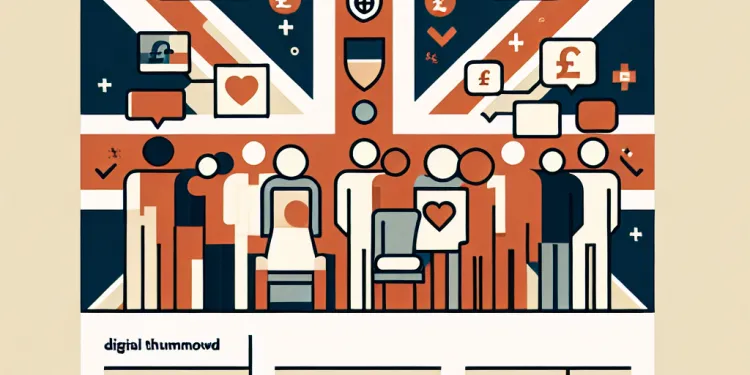
Can people with HIV lead normal lives?
Relevance: 35%
-

Can dementia affect younger people?
Relevance: 35%
-

Can people with autism lead independent lives?
Relevance: 35%
-

Are there vaccination recommendations for people with compromised immune systems?
Relevance: 34%
-

Are heart attack symptoms different for people with diabetes?
Relevance: 34%
-
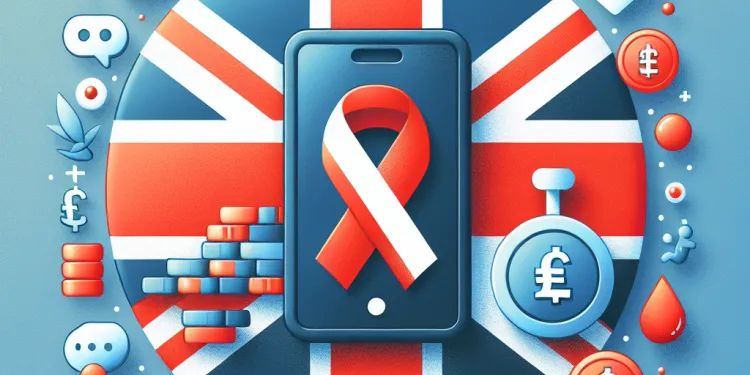
Is HIV only a concern for certain groups of people?
Relevance: 34%
-
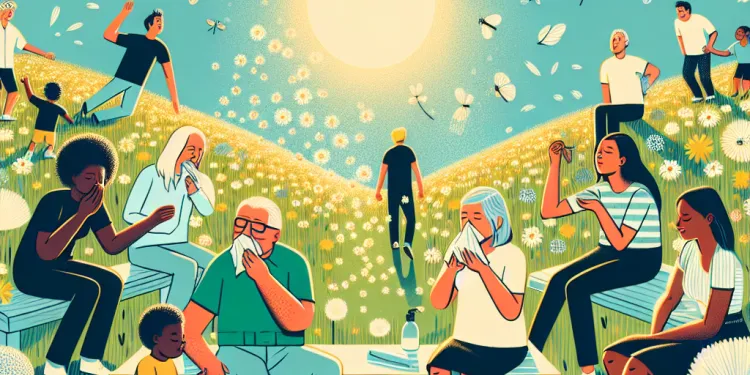
Are some people more prone to hay fever?
Relevance: 32%
-

What support is available for people with stoma bags?
Relevance: 32%
-
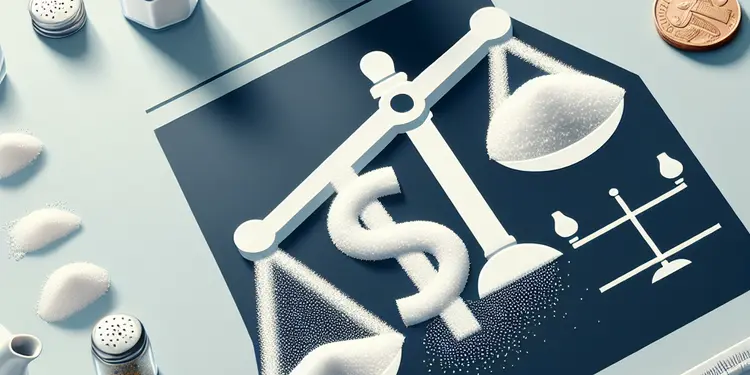
Do all people need the same amount of salt?
Relevance: 32%
-
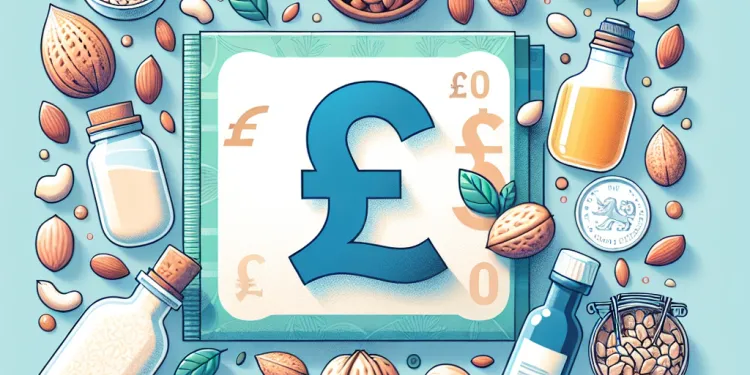
Are nut oils safe for people with nut allergies?
Relevance: 32%
-

Are there any support groups for people with dementia in the UK?
Relevance: 32%
-

Does physical exercise help people with CFS?
Relevance: 32%
-

Are younger people being diagnosed with bowel cancer more frequently?
Relevance: 32%
-

What online communities exist for carers of people with Alzheimer's?
Relevance: 31%
-

Why do vaccinated people sometimes still get sick?
Relevance: 31%
-

How do people get infected with E. coli?
Relevance: 31%
-

Should people with high blood pressure avoid coffee entirely?
Relevance: 31%
-

How does pollen affect people with hay fever?
Relevance: 31%
-

What support is available for people with Crohn's disease in the UK?
Relevance: 30%
-

Accessing cervical screening with the right support for people with a learning disability
Relevance: 30%
-

What benefits and entitlements are available for old people?
Relevance: 30%
-
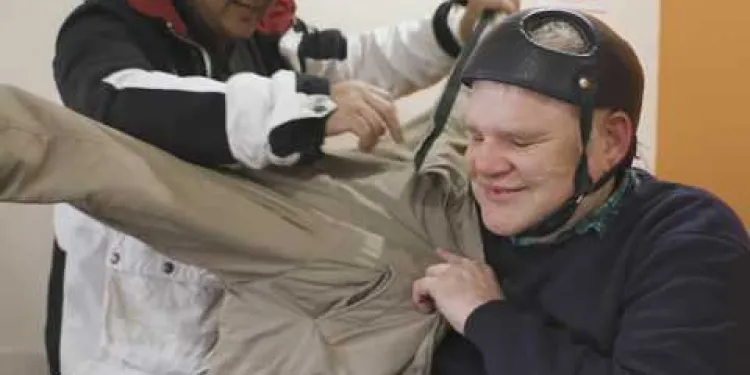
Transforming Care for people with Learning Disabilities and/ or Autism: Peter's Story
Relevance: 29%
-

What financial support is available for people with dementia?
Relevance: 28%
-

How can older people find hobby groups that align with their interests?
Relevance: 28%
-

Do I have a right to see other people's police records?
Relevance: 28%
-

How can older people find new hobbies and groups?
Relevance: 27%
-

How much caffeine is generally considered safe for people with high blood pressure?
Relevance: 27%
-

Developmental Coordination Disorder (DCD) for Children and Young People
Relevance: 27%
-
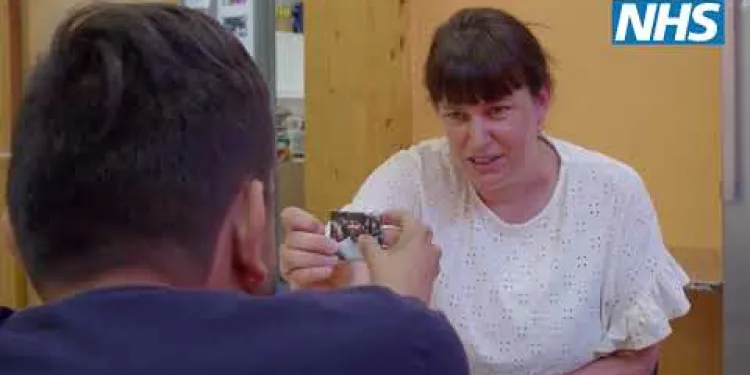
Use of reasonable adjustments to reduce health inequalities for people with a learning disability
Relevance: 27%
-

Voice banking service helps people live with motor neurone disease
Relevance: 27%
Why Do Some People Not Burn as Easily as Others?
When it comes to sun exposure, some people burn quickly, while others tan without much trouble. The reason for these differences lies in various biological and genetic factors, particularly related to skin type and melanin production.
Role of Melanin
Melanin is a natural pigment found in the skin, hair, and eyes that provides some protection against the harmful effects of UV radiation from the sun. People with darker skin tones have more melanin. This increased melanin acts as a barrier, absorbing and dissipating UV rays more effectively than lighter skin does. Consequently, individuals with higher melanin levels tend to tan rather than burn, offering a degree of innate protection against sun damage.
Genetic Factors
Genetics play a significant role in determining how easily a person burns. Different populations have adapted to their environments over thousands of years, resulting in genetic variations that influence skin color and sensitivity to sunlight. For example, people of African, South Asian, or Mediterranean descent typically have higher melanin levels due to their ancestors living in equatorial regions with intense sunlight. As a result, they are less likely to experience sunburn compared to people of Northern European descent, whose ancestors lived in regions with less sunlight.
Skin Types
The Fitzpatrick skin type classification is widely used to categorize skin based on its reaction to sun exposure. It ranges from Type I, which always burns and never tans, to Type VI, which never burns and deeply tans. People with skin types I and II, who usually have very fair skin, red or blond hair, and freckles, are more prone to sunburn. In contrast, those with Types V and VI, typically having naturally darker skin, are less susceptible to burning.
Environmental and Lifestyle Factors
Where a person lives also affects their likelihood to burn. Locations with stronger UV radiation levels, such as those near the equator or at high altitudes, increase the risk of burning. Additionally, lifestyle choices such as spending significant time outdoors and using protective measures like sunscreen, hats, or clothing can influence how often someone burns.
Protection and Prevention
Regardless of one's natural susceptibility to sunburn, taking protective measures is crucial for all skin types. Using broad-spectrum sunscreen with a high SPF, wearing protective clothing, and seeking shade during peak sun hours can help prevent burns and reduce the risk of skin damage and associated health issues like skin cancer. Understanding the factors that contribute to burning can aid individuals in better protecting their skin while enjoying the benefits of sunlight.
Why Do Some People Not Burn Easily?
When people go out in the sun, some get burnt quickly, while others get a tan. This is because of differences in their bodies and genes. It is mostly about skin type and a thing called melanin.
The Role of Melanin
Melanin is a color found in the skin, hair, and eyes. It helps protect us from the sun's harmful rays. People with darker skin have more melanin. This melanin makes their skin better at blocking the sun. Because of this, they are more likely to get a tan instead of a burn. This helps keep their skin safer from sun damage.
Genetic Factors
Genes are important for how easily someone gets sunburned. Over many years, different people have changed to match where they live. This has affected their skin color and how their skin handles the sun. For example, people from Africa, South Asia, or the Mediterranean have more melanin because their ancestors lived in very sunny places. So, they are less likely to burn than people from Northern Europe, where it is not so sunny.
Skin Types
Scientists use something called the Fitzpatrick skin type to describe how skin reacts to the sun. It goes from Type I to Type VI. Type I always burns and never tans. Type VI never burns and tans a lot. People with Type I and II have very light skin and might have red or blond hair and freckles. They burn easily. People with Type V and VI have darker skin and burn less often.
Where You Live and Your Lifestyle
The place someone lives can change how easily they burn. Places near the equator or high up in the mountains have stronger sun rays. This makes it easier to burn. Also, people who spend a lot of time outside without protection, like sunscreen or hats, might get burnt more often.
How to Stay Safe in the Sun
Everyone should protect their skin from the sun's rays. Use sunscreen with a high SPF, wear clothes that cover the skin, and find shade when the sun is strong. This helps stop sunburns and lowers the risk of skin problems like skin cancer. Knowing why people burn helps everyone take better care of their skin and still enjoy the sun safely.
Frequently Asked Questions
Why do some people not burn as easily as others?
People have varying sensitivity to sunburn due to differences in skin type, melanin levels, and genetic factors.
What role does melanin play in sunburn resistance?
Melanin is a pigment that provides some protection against UV radiation. Higher melanin levels can reduce the risk of sunburn.
How does skin type affect susceptibility to sunburn?
Skin types are classified on the Fitzpatrick scale, with Type I being very fair and Type VI very dark. Fairer skin is more prone to burning.
Can genetics influence how easily one burns?
Yes, genetic factors can determine skin type, melanin production, and sensitivity to UV light, affecting sunburn risk.
Do darker-skinned individuals need sunscreen?
Yes, while darker skin has more natural protection, it is still susceptible to UV damage and other effects like skin cancer.
How does sun exposure history affect sunburn risk?
Frequent or intense sun exposure can increase skin sensitivity over time, making sunburn more likely in future exposure.
Can diet have an impact on sunburn resistance?
While diet alone won't prevent sunburn, nutrients like antioxidants can support skin health and resilience to UV damage.
Does being in the sun more often increase burn resistance?
Regular sun exposure can increase melanin production slightly, but does not significantly alter inherent skin sensitivity.
Are there medical conditions that affect sunburn risk?
Yes, conditions such as albinism affect melanin production, increasing sunburn susceptibility. Medications can also heighten sensitivity.
What is the Fitzpatrick skin type system?
It's a classification system for skin color based on its response to UV exposure. It ranges from Type I (always burns) to Type VI (rarely burns).
Does age affect how easily someone burns?
Yes, young children and older adults may have more sensitive skin, increasing their risk of sunburn.
What protection factor does melanin provide?
Melanin does offer some protection; however, it's not a substitute for sunscreen, which provides a specific SPF protection level.
Can certain skincare products increase sunburn susceptibility?
Yes, products with ingredients like retinoids or AHAs can make skin more sensitive to sun exposure.
Why do some people tan instead of burn?
Tanning occurs when melanin in the skin absorbs UV rays, but those with more melanin tend to tan more easily than burn.
Do lifestyle factors influence sunburn likelihood?
Activities like spending a lot of time outdoors without protection and living at high altitudes or near the equator can increase sunburn risk.
Can sunburn resistance change over time?
Yes, changes in skin condition, medication use, and lifestyle can alter an individual's susceptibility to sunburn over time.
Is it possible to build up a natural tolerance to the sun?
While gradual exposure can slightly increase melanin production, inherent skin sensitivity does not change significantly.
How does the environment play a role in sunburn?
Factors such as altitude, reflection from surfaces like water or snow, and time of day affect UV intensity and sunburn risk.
Why do medications affect sunburn risk?
Certain medications, like antibiotics and acne treatments, can increase photosensitivity, making skin more prone to UV damage.
Do cultural and geographical differences affect sunburn risk?
Yes, people from different regions and ethnic backgrounds have varying skin types and melanin levels, influencing their sunburn susceptibility.
Why do some people not get sunburned as quickly?
Some people have different types of skin. Skin that is darker has more melanin. Melanin helps protect the skin from the sun. So, people with more melanin do not get sunburned as quickly.
To help protect your skin from the sun, you can:
- Wear sunscreen with a high SPF.
- Wear a hat and sunglasses.
- Stay in the shade when the sun is very strong.
People get sunburned differently because of their skin type, how much melanin they have, and their genes.
How does melanin help protect us from sunburn?
Melanin is a natural thing in our skin. It can help stop sunburn.
When we are in the sun, our skin makes more melanin. It helps block some of the sun's rays.
This means we don’t get sunburned as easily. But it's still important to wear sunscreen and stay in the shade.
If you're trying to understand this, you can use pictures or videos. They can help show how melanin works.
Melanin is a color in your skin. It helps protect you from the sun. If you have more melanin, you are less likely to get a sunburn.
Why do some people get sunburn more easily?
Your skin type can change how easy it is to get sunburn.
If you have fair or light skin, you might get sunburn more quickly.
Darker skin has more of something called melanin, which helps protect from the sun.
Here are some tips to stay safe in the sun:
- Wear sunscreen to protect your skin.
- Put on a hat and sunglasses.
- Stay in the shade during the hottest part of the day.
Skin types have different shades. We use a scale called the Fitzpatrick scale to talk about them. Type I is very light skin, and Type VI is very dark skin. People with light skin get sunburned more easily.
Do your genes affect how easily you get sunburned?
Your genes are like a set of instructions for your body. They can make it easier or harder for you to get sunburned.
If you burn easily, your skin might turn red and hurt when you stay in the sun too long. Some people have genes that make their skin burn more quickly.
To stay safe, wear sunscreen, a hat, or sit in the shade. You can also use an umbrella to block the sun.
Yes, your genes can decide what kind of skin you have. Genes also decide how much melanin your skin makes. Melanin is what gives your skin color. Some people have skin that burns easily in the sun. This is also because of their genes.
Do people with dark skin need sunscreen?
Yes, people with dark skin still need sunscreen.
Sunscreen helps protect your skin from the sun. Everyone, no matter their skin color, can get sunburned.
Using sunscreen can stop your skin from getting hurt by the sun.
Here are some tips for using sunscreen:
- Choose a sunscreen that says "broad-spectrum" and has at least SPF 30.
- Put sunscreen on all parts of your body that will be in the sun.
- Reapply sunscreen every 2 hours, or after swimming or sweating.
Ask an adult or use a reminder to help you remember to put on sunscreen.
Yes, even though darker skin has some natural protection, it can still get hurt by sun rays. This can cause problems like skin cancer.
How does spending time in the sun change the chance of getting sunburn?
Being in the sun a lot or getting too much sun can make your skin more sensitive. This means you can get sunburned more easily later on.
Can what you eat help stop sunburn?
Eating certain foods won't stop sunburn, but some foods can help keep your skin strong and healthy. Foods with antioxidants are good for your skin.
Does Spending More Time in the Sun Stop Sunburns?
If you spend more time in the sun, does it help you to not get sunburned?
Remember:
- Spending too much time in the sun can hurt your skin.
- Use sunscreen to protect your skin.
- Wear a hat and sunglasses when it is sunny.
Ask an adult for help if you are not sure what to do.
Going out in the sun can make your skin a bit darker. This is because your skin makes more melanin. Melanin gives your skin its color. But being in the sun won't really change how sensitive your skin is.
Can some health problems change how easily you get sunburn?
Yes, some people are born with conditions like albinism that make their skin more sensitive to the sun. This happens because their bodies don't make enough melanin, which helps protect their skin. Some medicines can also make your skin more sensitive to the sun.
Using sunscreen, wearing hats, and staying in the shade can help protect your skin. You can also ask your doctor for more advice.
What is the Fitzpatrick skin type system?
The Fitzpatrick skin type system is a way to check skin color. It helps us see how different skin reacts to sunlight. This system uses numbers from 1 to 6.
Here’s how it works:
- Type 1: Very pale skin, burns easily, never tans
- Type 2: Light skin, burns easily, tans a little
- Type 3: Medium skin, sometimes burns, tans well
- Type 4: Olive skin, rarely burns, tans easily
- Type 5: Brown skin, very rarely burns, tans very easily
- Type 6: Dark brown or black skin, never burns, always tans
If you find it hard to understand, you can ask a friend or an adult for help. You can also use apps or tools that read out loud to you. Pictures showing different skin types can also help you learn better.
This is a way to group skin colors by how they react to sunlight. There are six types:
- Type I: Always gets sunburned.
- Type VI: Hardly ever gets sunburned.
People with skin that burns easily should wear hats and sunscreen when outside.
Do older or younger people get sunburned more easily?
Yes, young children and older adults have skin that can burn easily in the sun.
How does melanin keep us safe from the sun?
Melanin is the stuff in our skin that gives it color. It helps keep our skin safe from the sun. Melanin works like a shield to protect us.
If you're going out in the sun, wearing sunscreen, a hat, or sunglasses can also help! These tools will keep your skin safe too.
Melanin helps a little bit to protect your skin. But it is not the same as sunscreen. Sunscreen gives your skin special protection called SPF.
Can some skincare products make you more likely to get sunburn?
Yes, some skin products can make your skin more sensitive to the sun. These products might have special things in them called retinoids or AHAs.
Why do some people get brown and not red in the sun?
Some people get brown when they are in the sun because their skin makes something called melanin. Melanin helps protect the skin from the sun. People with more melanin are less likely to get red and sore, which is called sunburn.
If you stay in the sun for too long, you can still get a sunburn. It is good to wear sunscreen, hats, and clothes that cover your skin. This helps keep your skin safe.
To understand better, you can look at pictures or videos about how the sun affects skin. Ask a friend, family member, or teacher to help explain if you have questions.
Tanning happens when a thing called melanin in the skin soaks up sunlight. People with more melanin usually get a tan instead of getting sunburned.
Can the way we live change how easy it is to get sunburn?
Being outside for a long time without sunscreen can make your skin red and hurt. Living high up in the mountains or close to the middle of the earth (equator) can also make sunburn more likely.
Can You Get Less Sunburned Over Time?
Yes, changes in your skin, the medicine you take, and how you live can make it easier or harder for you to get sunburn over time.
Can your skin get used to the sun?
Some people want to know if their skin can get used to being in the sun. This means they want to spend more time outside without getting a sunburn.
It's important to be careful in the sun. Try wearing a hat and putting on sunscreen to protect your skin. Ask an adult if you need help.
Going outside a little bit at a time can make your skin a bit darker because it makes more melanin. But even if your skin changes a bit, how it reacts to the sun stays pretty much the same.
How does the environment cause sunburn?
The environment is the world around us. It includes the sun, wind, water, and air.
The sun is very strong. It can hurt your skin. This is called sunburn.
The wind can make it harder to feel the hot sun, but the sun can still burn you.
If you are near water, like at the beach, the water can reflect the sun. This means more sun can hit your skin.
Use sun cream, wear a hat, and stay in the shade to protect your skin.
There are a few things that make the sun's UV rays stronger and can give you sunburn.
Being high up, like in the mountains, makes the sun stronger.
When the sun bounces off water or snow, it also gets stronger.
The time of day is important too. The sun is strongest in the middle of the day.
Remember to wear sunscreen, hats, and sunglasses to help protect your skin. You can also use an app to check the UV level where you are.
Why can medicines make you sunburnt?
Some medicines can make your skin more likely to burn in the sun.
Here are some tips to stay safe:
- Wear sunscreen.
- Wear a hat and clothes that cover your skin.
- Stay in the shade when the sun is very strong.
Always ask your doctor or pharmacist if you are not sure. They can help you understand more.
Some medicines, like antibiotics and acne treatments, can make your skin more sensitive to sunlight. This means your skin can get hurt by the sun more easily.
Does where you live or your culture change if you get sunburn?
Sunburn is when your skin gets red and sore from the sun. It can hurt a lot.
Different places have more sun. Some people have lighter or darker skin. These things can change how easy it is to get sunburn.
To stay safe, use suncream and wear hats. You can also stay in the shade when the sun is strong.
Yes, people from different places and backgrounds have different skin types. The amount of melanin in their skin can change how easily they get sunburn.
Useful Links
This website offers general information and is not a substitute for professional advice.
Always seek guidance from qualified professionals.
If you have any medical concerns or need urgent help, contact a healthcare professional or emergency services immediately.
Some of this content was generated with AI assistance. We’ve done our best to keep it accurate, helpful, and human-friendly.
- Ergsy carfully checks the information in the videos we provide here.
- Videos shown by Youtube after a video has completed, have NOT been reviewed by ERGSY.
- To view, click the arrow in centre of video.
- Most of the videos you find here will have subtitles and/or closed captions available.
- You may need to turn these on, and choose your preferred language.
- Go to the video you'd like to watch.
- If closed captions (CC) are available, settings will be visible on the bottom right of the video player.
- To turn on Captions, click settings .
- To turn off Captions, click settings again.
More Items From Ergsy search
-

Why do some people not burn as easily as others?
Relevance: 100%
-

How to treat a scald burn
Relevance: 79%
-

How do I deal with burns and scalds? (9 to 30 months) | NHS
Relevance: 67%
-

Can sunbeds help me burn calories or lose weight?
Relevance: 63%
-

Are some people more prone to sunburn?
Relevance: 43%
-

Anxiety in young people
Relevance: 42%
-

Flu vaccinations for people with a learning disability
Relevance: 37%
-

Is there support available for people with tinnitus?
Relevance: 37%
-

How do I notify people about the funeral?
Relevance: 36%
-

Improving outcomes for people with diabetes
Relevance: 36%
-

Can people with HIV lead normal lives?
Relevance: 35%
-

Can dementia affect younger people?
Relevance: 35%
-

Can people with autism lead independent lives?
Relevance: 35%
-

Are there vaccination recommendations for people with compromised immune systems?
Relevance: 34%
-

Are heart attack symptoms different for people with diabetes?
Relevance: 34%
-

Is HIV only a concern for certain groups of people?
Relevance: 34%
-

Are some people more prone to hay fever?
Relevance: 32%
-

What support is available for people with stoma bags?
Relevance: 32%
-

Do all people need the same amount of salt?
Relevance: 32%
-

Are nut oils safe for people with nut allergies?
Relevance: 32%
-

Are there any support groups for people with dementia in the UK?
Relevance: 32%
-

Does physical exercise help people with CFS?
Relevance: 32%
-

Are younger people being diagnosed with bowel cancer more frequently?
Relevance: 32%
-

What online communities exist for carers of people with Alzheimer's?
Relevance: 31%
-

Why do vaccinated people sometimes still get sick?
Relevance: 31%
-

How do people get infected with E. coli?
Relevance: 31%
-

Should people with high blood pressure avoid coffee entirely?
Relevance: 31%
-

How does pollen affect people with hay fever?
Relevance: 31%
-

What support is available for people with Crohn's disease in the UK?
Relevance: 30%
-

Accessing cervical screening with the right support for people with a learning disability
Relevance: 30%
-

What benefits and entitlements are available for old people?
Relevance: 30%
-

Transforming Care for people with Learning Disabilities and/ or Autism: Peter's Story
Relevance: 29%
-

What financial support is available for people with dementia?
Relevance: 28%
-

How can older people find hobby groups that align with their interests?
Relevance: 28%
-

Do I have a right to see other people's police records?
Relevance: 28%
-

How can older people find new hobbies and groups?
Relevance: 27%
-

How much caffeine is generally considered safe for people with high blood pressure?
Relevance: 27%
-

Developmental Coordination Disorder (DCD) for Children and Young People
Relevance: 27%
-

Use of reasonable adjustments to reduce health inequalities for people with a learning disability
Relevance: 27%
-

Voice banking service helps people live with motor neurone disease
Relevance: 27%


